
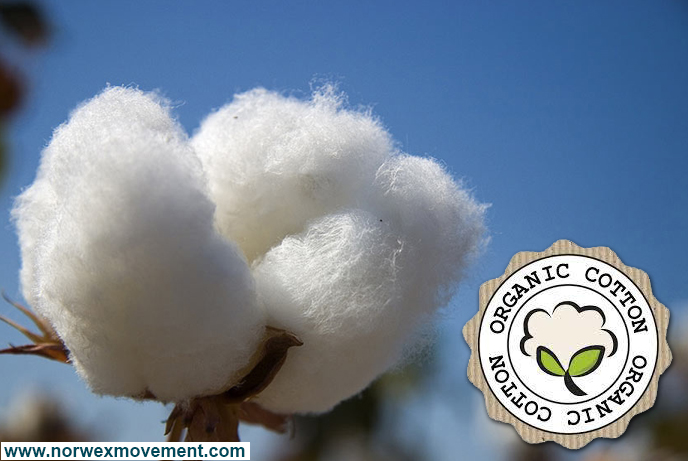
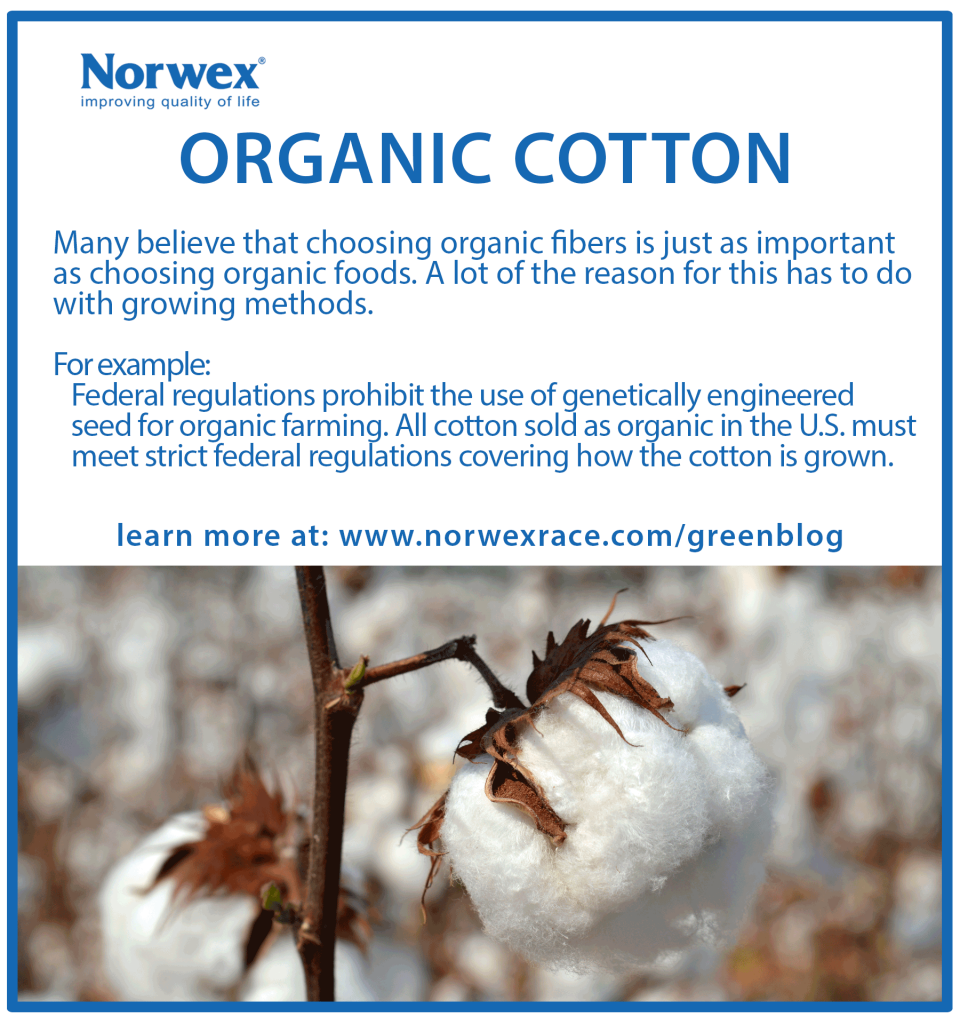 You may not typically give much thought to how the cotton that’s blended into your clothes, bed sheets, mattresses and personal products is grown. You may never have wondered what the cotton shrubs are fed, what is used to protect them from insects or how much water it takes to sustain them. And it might be hard to imagine that something so fluffy, so light, could be associated with unsafe chemicals. But traditionally grown cotton may not be as environmentally friendly as you might think. In fact, the Environmental Justice Foundation considers traditionally grown cotton the world’s “dirtiest” crop.
You may not typically give much thought to how the cotton that’s blended into your clothes, bed sheets, mattresses and personal products is grown. You may never have wondered what the cotton shrubs are fed, what is used to protect them from insects or how much water it takes to sustain them. And it might be hard to imagine that something so fluffy, so light, could be associated with unsafe chemicals. But traditionally grown cotton may not be as environmentally friendly as you might think. In fact, the Environmental Justice Foundation considers traditionally grown cotton the world’s “dirtiest” crop.
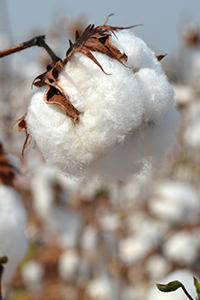 Why? Partially because non-organic cotton uses more insecticides than any other crop. In fact, cotton production involves up to 12% of the world’s pesticides and up to 25% of all the insecticides (insecticides are a category of pesticide). These chemicals can have a direct effect on the people and animals who may come into contact with them.
Why? Partially because non-organic cotton uses more insecticides than any other crop. In fact, cotton production involves up to 12% of the world’s pesticides and up to 25% of all the insecticides (insecticides are a category of pesticide). These chemicals can have a direct effect on the people and animals who may come into contact with them.
In addition, cotton’s most commonly used fertilizer is nitrogen. Nitrogen is believed to be a major contributor to increased nitrous oxide emissions, a potent greenhouse gas. Furthermore, nitrogen synthetic fertilizers have been shown to harm the environment and to cause leaching and runoff that affects freshwater habitats and wells.
Today, less than one percent of cotton is grown organically. But as a result of growing consumer interest, organic cotton fiber is now being used in everything from personal care items (sanitary products, cotton swabs and puffs, even toilet paper), to fabrics, home furnishings (bathrobes, sheets, blankets, bedding, beds), children’s products (toys, diapers) and of course clothes of all styles.
Cotton products made with organic fibers may not always be easy to find and are generally more expensive, but many believe that choosing organic fibers is just as important as choosing organic foods. A lot of the reason for this has to do with growing methods. For example:
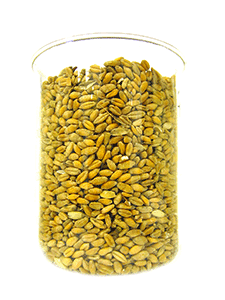 Federal regulations prohibit the use of genetically engineered seed for organic farming. All cotton sold as organic in the United States must meet strict federal regulations covering how the cotton is grown.
Federal regulations prohibit the use of genetically engineered seed for organic farming. All cotton sold as organic in the United States must meet strict federal regulations covering how the cotton is grown.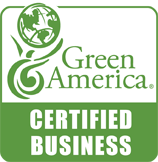 Yes, organically grown may be more expensive but the benefits of cleaner water, healthier people and a less chemically burdened planet may outweigh the cost.
Yes, organically grown may be more expensive but the benefits of cleaner water, healthier people and a less chemically burdened planet may outweigh the cost.
If you are thinking about opting for organic more frequently, here are 150 businesses that specialize in all kinds of fun organic options:
http://www.greenamerica.org/livinggreen/organiccotton2.cfm
Resources:
http://www.pccnaturalmarkets.com/sc/0911/sc0911-organic-cotton.html
http://www.huffingtonpost.com/david-dietz/organic-cotton-sustainable-fashion_b_3562788.html
http://www.organyc-online.com/what-you-should-know/
https://www.ota.com/resources/organic-cotton-survey
http://www.organicconsumers.org/clothes/224subsidies.cfm/
http://www.greenamerica.org/livinggreen/organiccotton2.cfm
http://eurecoecostore.blogspot.com/2010/07/organic-cotton-farming.html
Exactly!! I love how organic cotton is explained in this blog. I buy the organic cotton (Kirkland) baby pajamas at Costco. I check all my baby’s clothes labels – he NEVER wears anything with flame retardants. And we have a Britax car seat, too!
Many farmers will also rotate their cotton crops with peanut crops. That’s also something to consider when feeding yourself or your children peanut butter.
Great info, this is why I switched to bamboo toilet paper.. more sustainable than cotton!
Thanks for your time on this wonderful blog and listings about organic cotton clothes